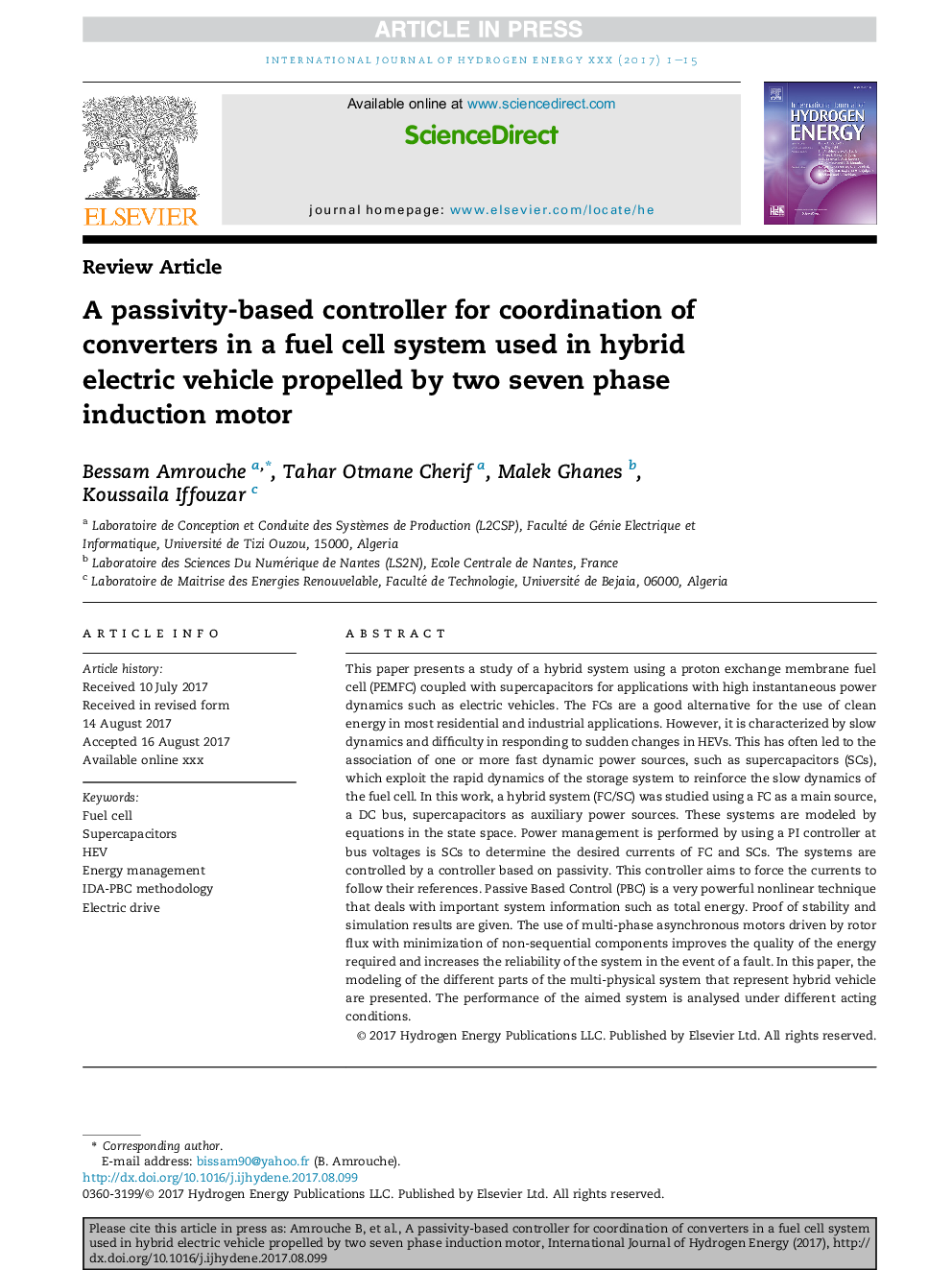| Article ID | Journal | Published Year | Pages | File Type |
|---|---|---|---|---|
| 5145070 | International Journal of Hydrogen Energy | 2017 | 15 Pages |
Abstract
This paper presents a study of a hybrid system using a proton exchange membrane fuel cell (PEMFC) coupled with supercapacitors for applications with high instantaneous power dynamics such as electric vehicles. The FCs are a good alternative for the use of clean energy in most residential and industrial applications. However, it is characterized by slow dynamics and difficulty in responding to sudden changes in HEVs. This has often led to the association of one or more fast dynamic power sources, such as supercapacitors (SCs), which exploit the rapid dynamics of the storage system to reinforce the slow dynamics of the fuel cell. In this work, a hybrid system (FC/SC) was studied using a FC as a main source, a DC bus, supercapacitors as auxiliary power sources. These systems are modeled by equations in the state space. Power management is performed by using a PI controller at bus voltages is SCs to determine the desired currents of FC and SCs. The systems are controlled by a controller based on passivity. This controller aims to force the currents to follow their references. Passive Based Control (PBC) is a very powerful nonlinear technique that deals with important system information such as total energy. Proof of stability and simulation results are given. The use of multi-phase asynchronous motors driven by rotor flux with minimization of non-sequential components improves the quality of the energy required and increases the reliability of the system in the event of a fault. In this paper, the modeling of the different parts of the multi-physical system that represent hybrid vehicle are presented. The performance of the aimed system is analysed under different acting conditions.
Related Topics
Physical Sciences and Engineering
Chemistry
Electrochemistry
Authors
Bessam Amrouche, Tahar Otmane Cherif, Malek Ghanes, Koussaila Iffouzar,
